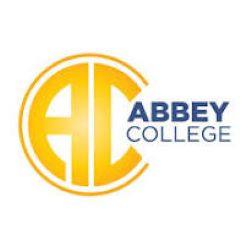Context for joining Behaviour Hubs
We are a school of just over 1000 students in rural Cambridgeshire. 22% of our students are considered to be disadvantaged. Ramsey is a rural market town with 91% White British students with limited firsthand exposure to other cultures and beliefs.
There is a lack of investment in the infrastructure and transport and therefore a large proportion are unable to access wider career opportunities; hence aspirations are limited.
A large proportion of our students are from families who have been through the school in previous generations and have historically negative attitudes towards the school.
Behaviour challenges and goals
To improve the quality of relationships across the school by:
- Changing the balance of negative behaviour messages vs positive spirit messages.
- Build daily opportunities to share key messages, teach virtues, provide collective feedback to students
- Identifying appropriate space and staff to deliver positive daily messages and then ensuring that all students and staff understood the rationale and intended impact of this
- Identifying areas of school life where the negative messages had been more prominent than the positive and then reframing our language to redress this balance. Also prioritizing positive messages over general messages/emerging issues that need to be delivered to students.
Solutions to behaviour challenges
We changed the time of our SLT briefing to allow us to be out on duty for 8:15 to create a positive welcome for students arriving at school. We have also allocated one SLT member to each year group to support the RSLs in delivering our daily virtue message to ensure that a positive and consistent tone is set. We have moved the Monday briefing and staff duty slots to the line up areas so that form tutors can be present with their forms as often as possible. The Behavior Hubs programme has supported this as we saw a range of examples of school’s starting their day with line ups and positive messages.
We moved away from focusing on tells and removals in assemblies and from regularly writing about behavior concerns in parent communications. We set year group targets for spirit rather than for behavior and rewarded each year group with a non-uniform day when they met them. Where we had focused the order of our canteen queue on the year group with the fewest tells, we changed this to the year group with the most spirit/the most improved attendance etc. We also introduced Golden Tickets, worth 5 spirit points, to ensure that quiet and consistently hard-working students are not overlooked. This is an idea that we took from our Behaviour Hubs Lead School.
Impact on behaviour
- Our ratio of positive to negative points for students has risen from 6:1 to 10:1 over the course of the year on the programme
- Year 10 PASS score for feelings about school has risen from 15.27 to 20.4 and attitudes to teachers has risen from 15 to 23.7
- Year 7 PASS score for feelings about school has risen from 11.8 to 26.2.
Next steps on your behaviour journey
Our next steps in improving relationships across the school are to explicitly teach politeness to students to ensure that all students know what positive and courteous communication looks like and can then employ this in each interaction.
We have begun working on ‘please, thank you, sorry and pardon’ using the structures that we have set up this year, including through our morning messages. The next steps with this are appropriate greetings and not interrupting.
We plan to continue to actively share the way that we celebrate the positives with both parents as there is more work to be done in changing their perception of relationships within the school.

